Allergy
An Introduction to Allergic Diseases
The incidence of respiratory allergies is increasing, particularly in industrialized areas. Allergic inflammation can occur in both the upper and lower airways, and can differ substantially in intensity. Traditional drug therapy such as antihistamines, corticosteroids, anticholinergic agents and leukotriene inhibitors is important in reducing and preventing symptoms and is essential in acute use. More recent therapies including anti-immunoglobin E (IgE) therapy, anti-interleukin (IL) monoclonal antibodies, and phosphodiesterase 4/phospholipaseA2 inhibitors, have improved outcomes. However, in order to develop more effective therapies, further research is needed into the molecular mechanisms underlying respiratory allergy onset, particularly in terms of intracellular reactions and the cytosolic Ca2+ balance.
Browse our selection of video highlights and short articles from the conference hub, providing insights into the latest updates from major conferences and a selection of peer-reviewed articles from the journal portfolio.
Our supporting partners do not constitute an endorsement of the content on this page.

In this EAACI 2025 interview, Dr Remi Gagnon discusses his presentation on the TT-06 phase III trial. This was the first trial to investigate the SQ tree sublingual immunotherapy (SLIT) tablet in children aged 5–17 with tree pollen-induced allergic rhinitis and/or conjunctivitis. This interview explores the impact of seasonal allergies on quality of life and the background, design, and findings from the study.

Physician burnout is at a critical point. In this episode, Nicky speaks with Dr Alfred Atanda about why so many physicians are burning out and what can be done to change the trend. From personal experience to system-wide solutions, Dr Atanda shares valuable insights on improving physician well-being and building a more effective healthcare culture.

Future Leader, Dr Michelle Korah-Sedgwick discusses her innovative work at the intersection of immunology and respiratory care, focusing on uncovering immune deficiencies in chronic lung disease. She shares insights on personalized treatment approaches, the value of clinical vigilance, and how registries are transforming care for patients with complex respiratory conditions.

In this episode, we explore the future of continuing medical education (CME) with the team behind touchIME. Hannah Fisher and Matthew Goodwin share insights into global and US trends, the importance of patient inclusivity and how educational outcomes are evolving to better measure the direct impact of learning on clinical practice and patient care.

The current treatment landscape for severe asthma faces major challenges despite biologic advances targeting type 2 inflammation. Current biomarkers like BEC and FeNO inadequately predict treatment response. To optimize precision medicine, improved molecular phenotyping and novel non-invasive biomarkers are urgently needed to better identify asthma endotypes and guide therapy.
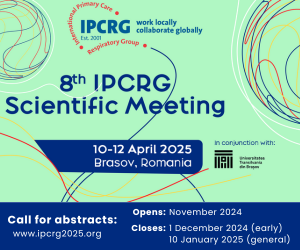
The International Primary Care Respiratory Group (IPCRG), is proud to host the 8th IPCRG Scientific Meeting in Brașov, Romania, on Friday 11 and Saturday 12 April 2025. This event, in partnership with the RespiRO team and the Transilvania University of Brașov promises to bring together researchers, innovators, and industry leaders to advance respiratory care in primary health settings.
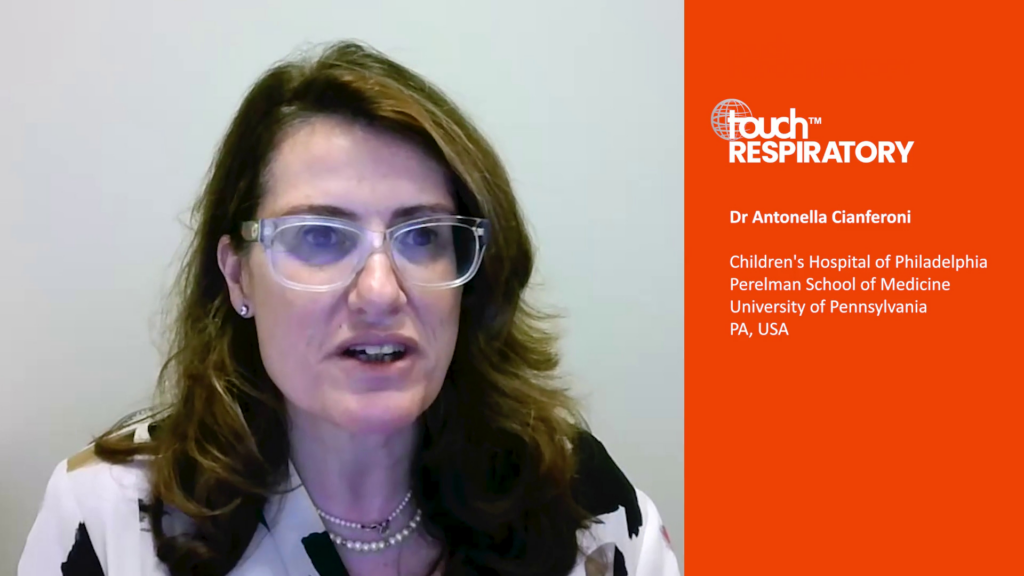
An allergist shares her expert insights on the latest guidance for the diagnosis and management of food allergies, including the role of novel diagnostic tools and emerging therapies in clinical practice.
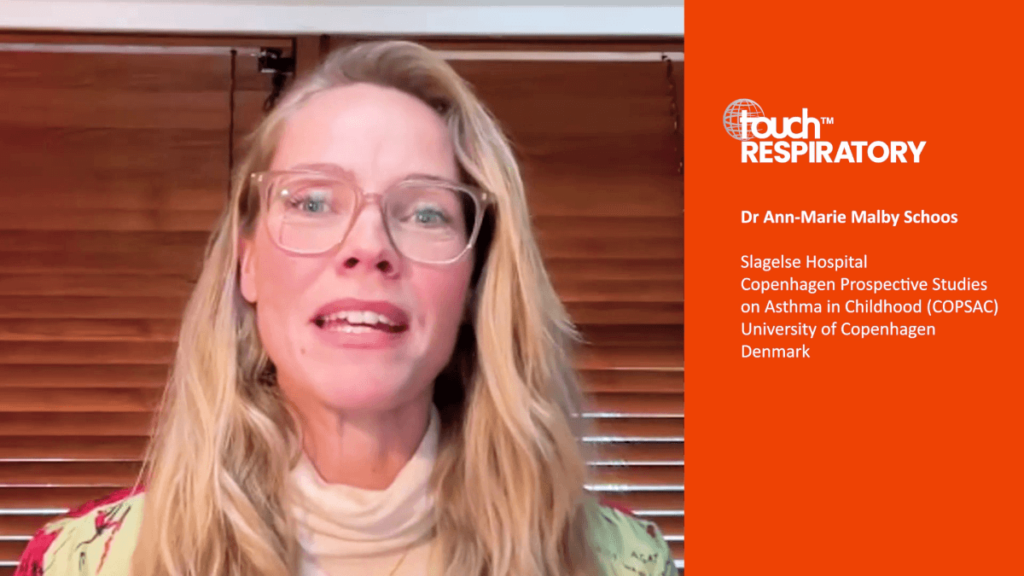
An allergist shares her expert insights and guidance on key clinical questions around the changing paradigm in the diagnosis and management of pet allergies.
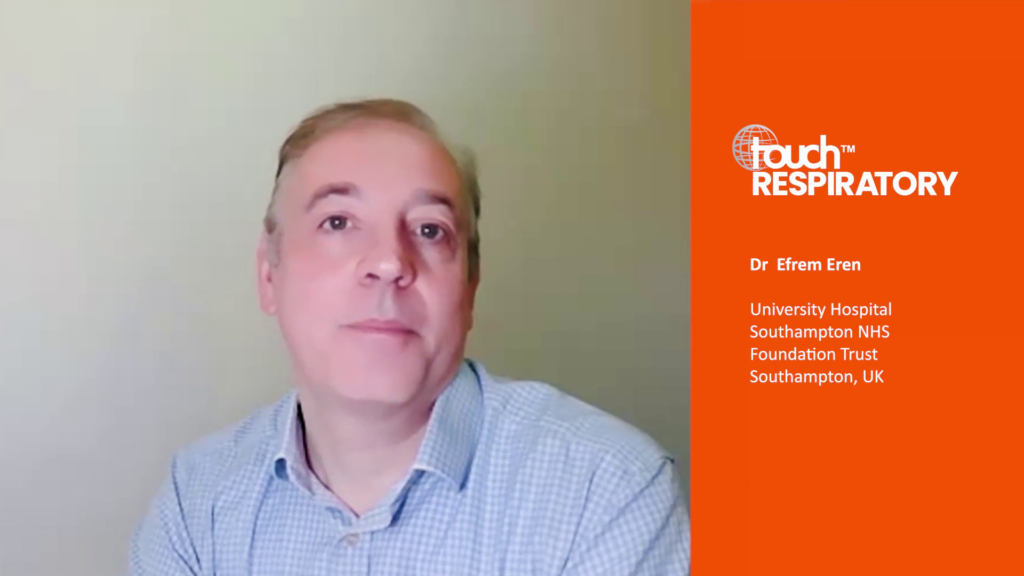
Three experts discuss the challenges related to recognizing, diagnosing and treating patients with eosinophilic oesophagitis (EoE) and highlight how advances in diagnostic tools and emerging treatments may impact future care.





Air pollution has been linked to exacerbating and causing symptoms associated with respiratory diseases, particularly impacting patients with asthma, COPD and allergic disease. touchRESPIRATORY were delighted to speak with Prof. Claudia Traidl-Hoffmann (University in Augsburg, Germany) around the symptoms associated ...

Dupilumab is used to manage chronic rhinosinusitis with nasal polyposis, however there is limited data regarding its use in patients with aspirin-exacerbated respiratory disease (AERD). touchRESPIRATORY caught up with Dr Isaac Schmale (University of Rochester Medical Center, Rochester, NY, USA) ...

touchRESPIRATORY were delighted to speak with Dr Isaac Schmale (University of Rochester Medical Center, Rochester, NY, USA) around the signs and symptoms of aspirin-exacerbated respiratory disease (AERD), the incidence of AERD in people with asthma, the current treatment paradigm for ...

Watch experts give their perspective on different aspects of managing patients with EoE, based on clinical case studies.







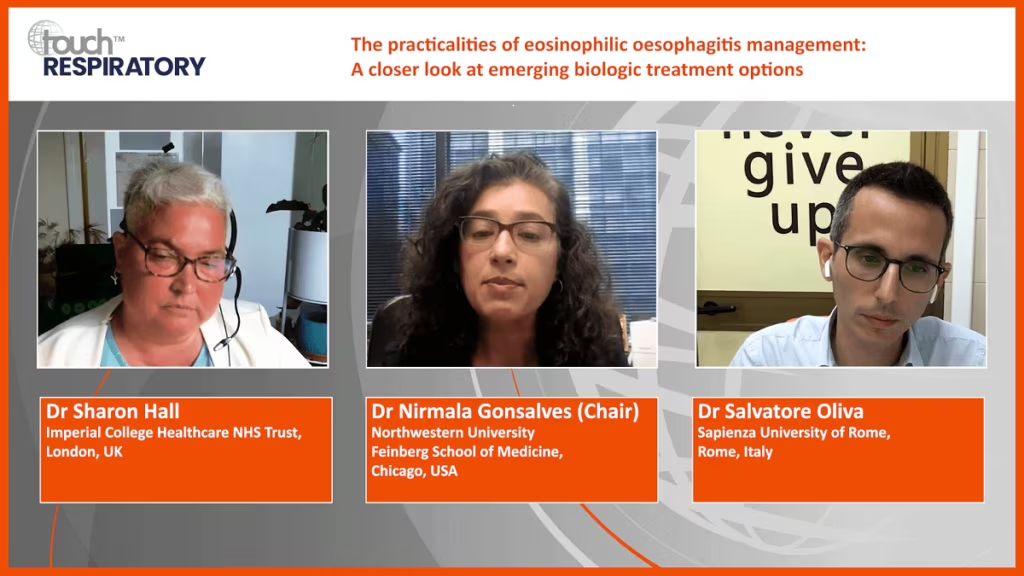
Watch leading experts discuss practical aspects of caring for children and adults with EoE, drawing on their own clinical experiences.








With the advent of newer drugs targeting the biochemical pathways that lead to cough, it is increasingly important to understand the definition, pathogenesis and management of this symptom. Several specialist bodies also recognize the need for guidance in this area, ...
Latest articles videos and clinical updates - straight to your inbox
Log into your Touch Account
Earn and track your CME credits on the go, save articles for later, and follow the latest congress coverage.
Register now for FREE Access
Register for free to hear about the latest expert-led education, peer-reviewed articles, conference highlights, and innovative CME activities.
Sign up with an Email
Or use a Social Account.
This Functionality is for
Members Only
Explore the latest in medical education and stay current in your field. Create a free account to track your learning.







